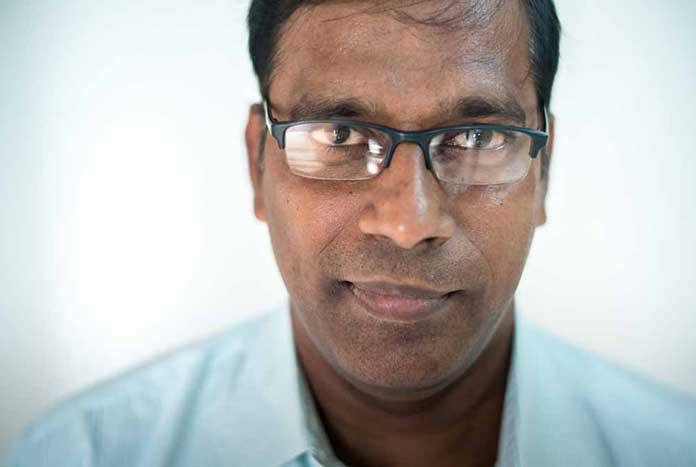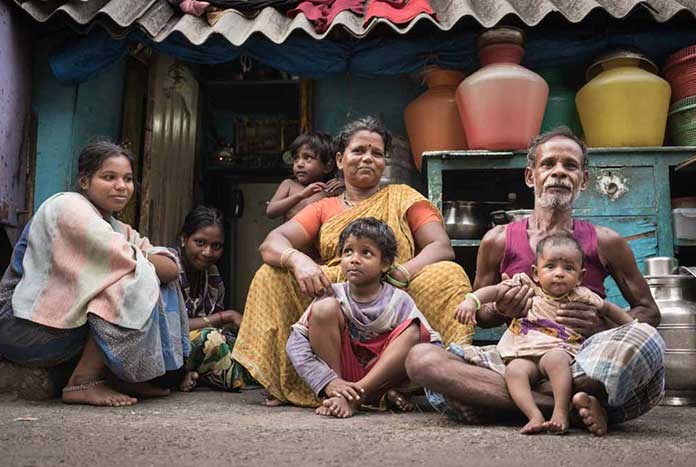“India is burning. Coronavirus is spreading throughout the country with renewed and devastating force. At the time of writing, daily infections are surpassing 360,000, and the total death toll has now passed a grim milestone of 200,000.” Karin Joseph writes about the current situation in India.
Despite these communities having no way to feed themselves, the government did not release any emergency aid for them.
India is burning
Coronavirus is spreading throughout the country with renewed and devastating force. At the time of writing, daily infections are surpassing 360,000, and the total death toll has now passed a grim milestone of 200,000.
Funeral pyres are burning in car parks as crematoriums struggle to cope. While nations like the UK begin to open up again amid rapid vaccination drives (with much of the vaccine produced in India), most of India’s huge population remains unvaccinated as it faces new virus variants, overflowing hospitals, and devastating oxygen shortages.

Paul Sunder Singh from Karunalaya, our partner in India
— — — — — — — —
The Indian Government’s response to the latest wave of coronavirus has been heavily criticised, with many decisions waiting on last week’s election results. The DMK Party took control of the Tamil Nadu congress and stated that the phased lockdown would be increased. From 7th–20th May, all non-essential shops will be shut, with essential shops opening until 12:00pm each day.
Public transport is still open but schools, colleges, businesses, and law courts are now closed for an extended summer period and most migrant workers are looking to return to their villages before a full lockdown is imposed on 20th May. The consequence is that most day workers now have no income, and our partner Karunalaya are receiving increasing requests for emergency supplies.
Pavement-dwelling communities fear a repeat of what happened in March-June 2020, when their daily wages dried up overnight after one of the strictest lockdowns in the world was implemented without any government support available. They were left with no ability to feed themselves or their families.
While nations like the UK begin to open up again amid rapid vaccination drives (with much of the vaccine produced in India), most of India’s huge population remains unvaccinated as it faces new virus variants, overflowing hospitals, and devastating oxygen shortages.
Karunalaya’s team shared with us how the current restrictions are again impacting these communities, particularly the women. Many would normally be earning their income from selling flowers for functions and festivals, which are now cancelled. Domestic workers are losing wages when anyone in the household where they are employed, tests positive for Covid.
There is no work in shopping malls, theatres, and function halls. Children are also hugely affected, with thousands missing out on school as they remain closed. Meanwhile the activities Karunalaya would normally organise for children in pavement-dwelling communities cannot continue because police are enforcing lockdown rules.
The DMK Party, as part of their election campaign, pledged to give all women with a ‘family card’ 1,000 Rupees a month (£10), to help with food supplies. All of the pavement-dwelling communities should be eligible for this. However, the multi-generational lack of birth certificates, low levels of literacy and poor understanding of their rights means that most members of these communities cannot get family cards and will be unable to access these benefits.
Webinar
To hear more on India’s coronavirus crisis and how it is impacting the lives of India’s poorest, please do watch the webinar below that we held on 22nd April with Paul Sunder Singh from Karunalaya (above), and good friends of Amos, Dr Elizabeth Joy and Azey Siddiqui.
How can you help?
Karunalaya provided emergency food aid to over 3,000 families in last year’s lockdown. They are anticipating needing to respond in a similar way again soon, and are planning out their three-fold response:
- Emergency food packages:
3 weeks’ food support for a family at a cost of £30 per family for a basic food package.
- Cooking for communities:
Many community members have continued to struggle financially since last year and cannot buy oil for cooking. Karunalaya plans to cook meals for 150 people per day throughout this next phase of lockdown at a cost of £0.65 per meal.
- Emergency accommodation:
Karunalaya needs to increase capacity at their two shelters to accommodate urgent requests already coming in, to care for children arriving at the railway station, or being orphaned by Covid-19.
They will be creating 20 extra bed spaces at a cost of £22 per bed, and providing additional PPE for staff which will cost £8 per staff member.
To support Karunalaya’s emergency efforts, please visit amostrust.org/karunalaya where you can make a donation.
Thank you.
Karin Joseph

















